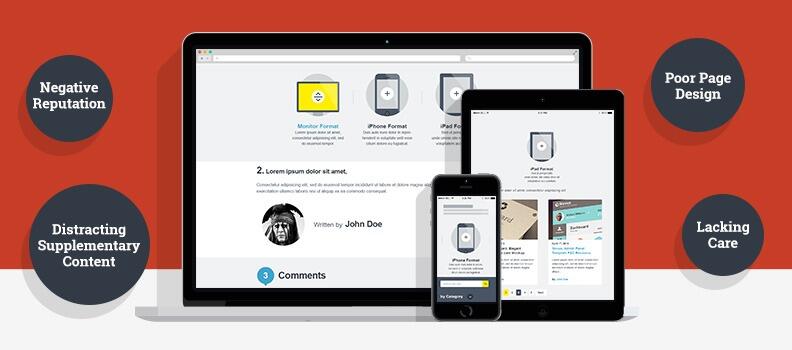
Google's Page Quality ratings - What makes a page low quality?
Google is probably the most powerful company on the web and any opportunity to find out what's under the bonnet of their ranking algorithm is always of interest. Recently Google, for the first time gave us the opportunity to see how they decide if a site is worthy of a place at the top of a set of search results. It came in the form of a document used to help Google's Search Quality Raters analyse the expertise, authoritativeness and trustworthiness of a web page. The document has been leaked before back in 2001, 2008, 2012 and an abridged version in 2013, but never has the complete document been published. If you'd like to read the whole thing it's available to download as a pdf here, but we've taken some key pointers about what makes a page Low Quality. Low quality pages are unsatisfying or lacking in some element that prevents them from achieving their purpose well. If a page has one of the following characteristics, the Low rating would be considered by Google:
- The quality of the Main Content is low. One of the most important considerations in Page Quality rating is the quality of the Main Content. The quality of the Main Content is determined by how much time, effort, expertise, and talent/skill have gone into the creation of the page.
- There is an unsatisfying amount of Main Content for the purpose of the page. Some Low quality pages are unsatisfying because they have a small amount of Main Content for the purpose of the page. For example, imagine an encyclopedia article with just a few paragraphs on a very broad topic such as World War II.
- The author of the page or website does not have enough expertise for the topic of the page and/or the website is not trustworthy or authoritative for the topic. In other words, the page/website is lacking E-A-T (expertise, authoritativeness and trustworthiness). Some topics demand expertise for the content to be considered trustworthy. Important topics such as medical advice, legal advice, financial advice, etc. should come from authoritative sources in those fields. Even everyday topics, such as recipes and housecleaning, should come from those with experience and everyday expertise in order for the page to be trustworthy.
- The website has a negative reputation. Extremely negative, malicious, or financially fraudulent reputation information should result in a Lowest rating.
- The Supplementary Content is distracting or unhelpful for the purpose of the page. Some webpages are designed to encourage users to click on Supporting Content that is not helpful for the purpose of the page. This type of Supporting Content is often distracting or prominently placed in order to lure users to highly monetized pages. Sometimes, distracting and unhelpful supporting content is actually Ads. These are considered both unhelpful/distracting supporting content as well as deceptive/misleading page design.
- Lacking Supplementary Content A large organisation it is expected to have a sophisticated website content strategy that allows visitors to engage with the main content, but that also allows them to discover new areas via supplementary content. On its own this should not be considered a reason for a low rating, however a lack of helpful supplementary content maybe a reason for a low quality rating, depending on the purpose of the page and the type of website.
- Poor page design A small website that displays family photos of a holiday is not expected to have a professional looking design as it's intended audience would need or anticipate the design to be modern. However a modern site, with many pages that is stuffed with monetised links should be marked as low quality. • Many Ads or highly distracting Ads on the visible part of the page when it first loads in the browser (before you do any scrolling), making it difficult to read the Main Content. • Repeated insertion of Ads between sections of the Main Content, so that the page jolts the user back and forth between Main Content and Ads in a way that makes the Main Content difficult to read. • Invasive Ads, such as popups that cannot be closed. • A large quantity of Ads with a relatively small amount of helpful MC. • Text ads, placed beside or within the site's navigation links, which may confuse users.
- Lacking Care and Maintenance Depending on the content, your site may receive a lower rating for page quality if the information within it is not updated regularly. A site providing information on legislation, medical or tax advice for example would be expected to be updated regularly. This is opposed to a site that relates to a single historical event like a Birthday Party or Wedding, that is unlikely to be updated regularly.
We'll be posting a further article on what Google's raters look for in a High Quality web page.


